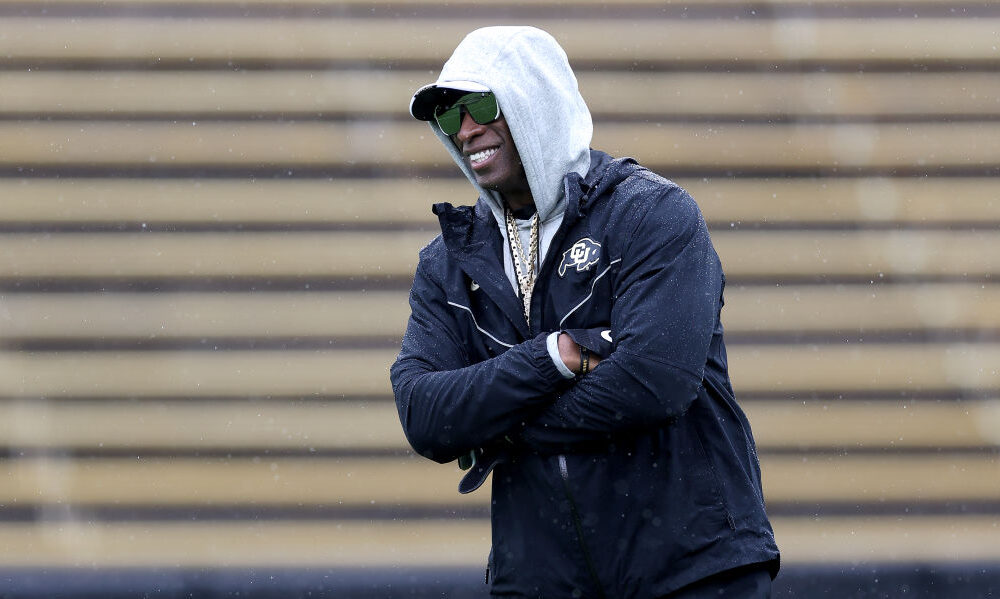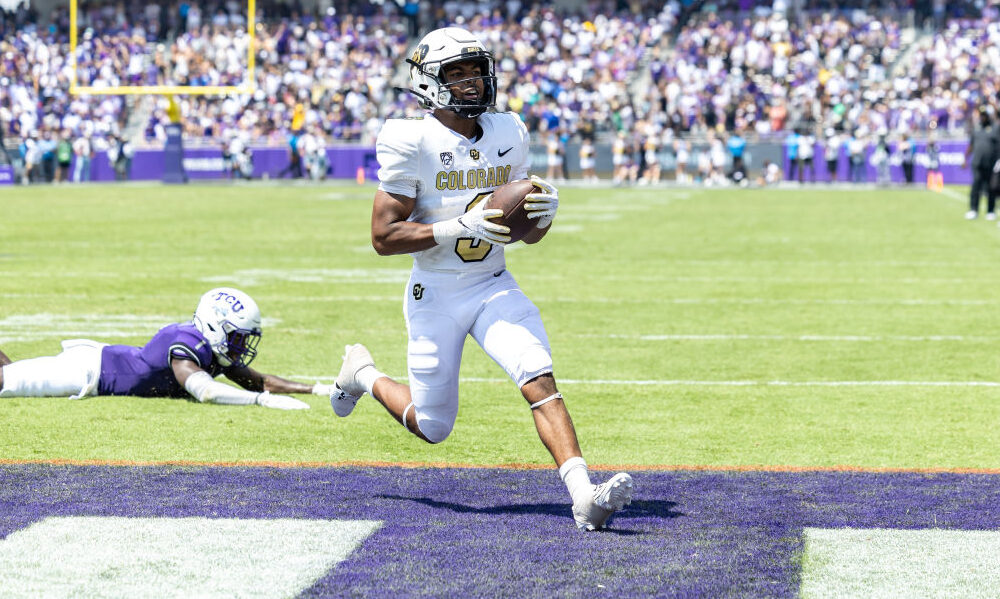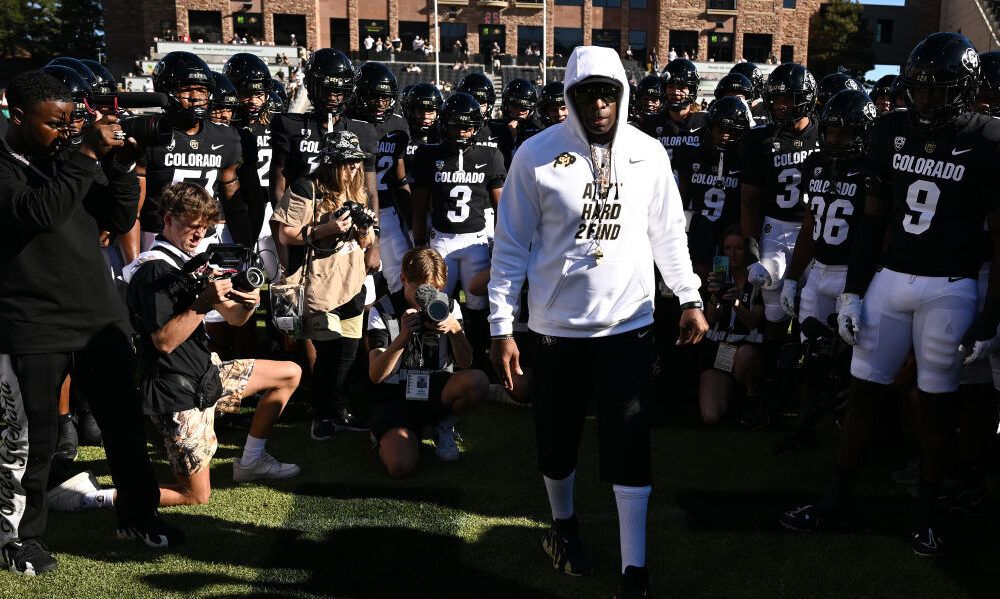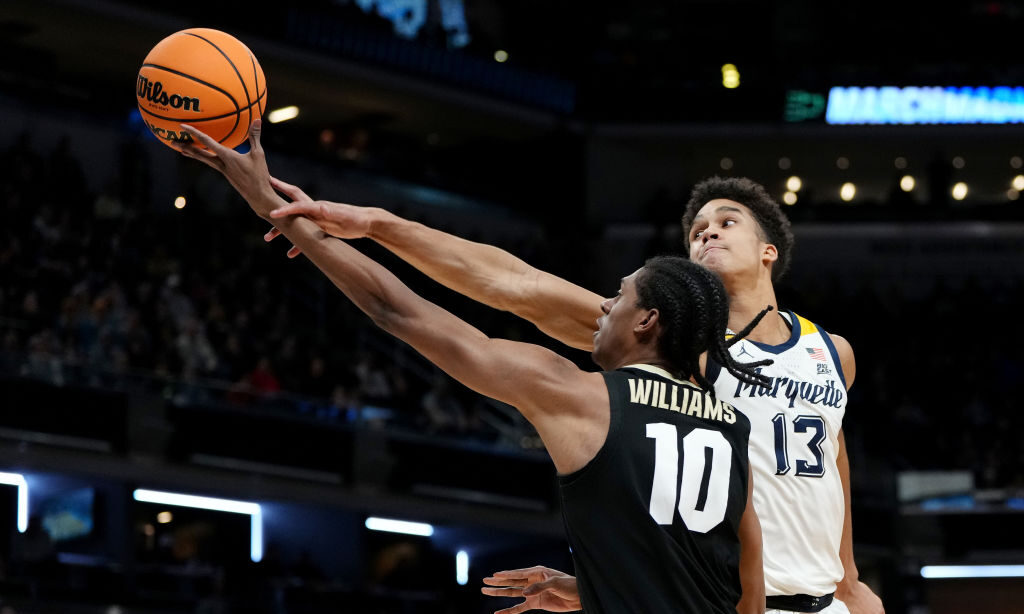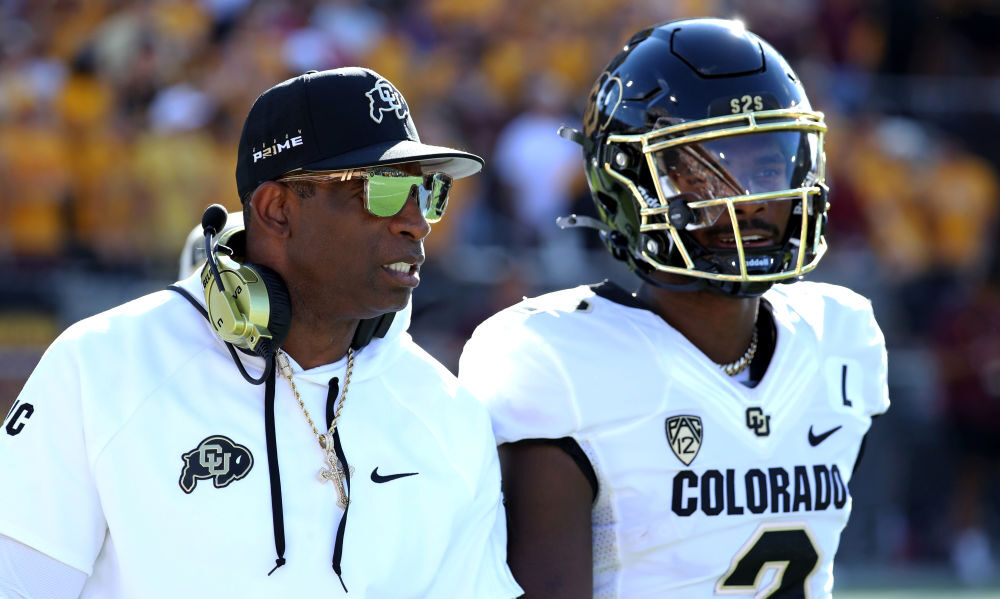What CU’s move to the Big 12 means for the Buffs, college sports
Jul 27, 2023, 5:30 PM
The current wave of conference realignment in college sports that the Colorado Buffaloes essentially kicked off more than a decade ago now includes the CU Buffs again.
The University of Colorado is set to go back to the Big 12 after the 2023-24 season, re-joining the conference after leaving in the summer of 2011. The move comes in the wake of USC and UCLA’s pending departure from the Pac-12 for the Big Ten as the conference once anchored by those Los Angeles schools continues to disintegrate. Without the Trojans and Bruins Pac-12 commissioner George Kliavkoff has not been able to secure a TV deal past this current season. With that in mind the Buffs bolt for more security in their old conference—the Big 12.
On Thursday another major step came in the move, as Colorado’s Board of Regents approved the athletic department’s free exit from the coast to the pasture. Now it’s all but inventible, as both sides want this to happen, that CU will soon play in the Big 12 again. What does it all mean though, how will it impact the school, football, non-football sports, fans and more?
Catching up with the Big 12
The Big 12 has had a bunch of ups and downs since the Buffaloes left. The day Colorado went to the Pac-12, rival Nebraska bolted for the Big Ten. A year later longtime member Missouri and huge brand Texas A&M departed for the SEC. Taking the latter two’s place was TCU and West Virginia, keeping the conference at 10 schools until now when a bunch of changes are set to take place.
Going back to when the Buffaloes first left, it was reported that they were part of a larger contingent exiting the Big 12 for the Pac-10 (at the time) to become the Pac-16. But Oklahoma, Oklahoma State, Texas, Texas A&M and Texas Tech never went out West, leaving Colorado entering the Pac-12 with Utah.
After this athletic season, Oklahoma and Texas will finally leave the Big 12 with their giant moves to the SEC in the works. At the end of the day it could be argued the Pac-16 never happening because of the conference’s strong arm of Texas is the reason the super conference never happened and ultimately the reason the Pac seems to be dead.
But before Oklahoma and Texas leave next summer, BYU, Houston, UCF and Cincinnati have joined this summer. That means the conference is right now at a high point of 14, set to go back down to 12 next summer and push to 13 when the Buffaloes join.
All the recent movement has come under longtime sports executive and current conference commissioner Brett Yormark. Big 12 leadership was able to secure a major TV deal last year worth over $2 billion which will see the Buffaloes and their peers earn over $31 million a season. Yormark has also talked about expanding the conference further, meaning a 14-team could logically be coming with Colorado and maybe from the Pac-12. And it’s been rumored the Big 12 is looking to jump all the way up to 16, which is what the Big Ten and SEC have. Among the candidates would be, Oregon, Washington, Arizona, Utah and Arizona State. The first three are in rumors to join, the other two are more speculative. UConn, San Diego State and Colorado State are among the top non-power schools that have a shot at getting in. In fact, Colorado is the first power school to join the Big 12 since the Southwest Conference collapsed in the 1990s, all the recent adds have been former G5 programs.
Colorado Football
To say the Buffaloes have struggled in the Pac-12 would be an understatement. Only twice has CU made a bowl game, and one of those was in a shortened season. Colorado only once even won their six-team South division. The change will pull the Buffaloes resources away from California and toward Texas, both in recruiting and competition. Though, it’s not like the Buffs were thriving at the end of their Big 12 time either, yet they’ve had their greatest successes in that conference and the precursor Big 8. A lot has changed in Boulder, Colorado, the conference and the sport since all of this coincided.
Given the new College Football Playoff expansion coming next year as well, it does behoove the Buffaloes to remain in a power conference with an automatic bid to the dance. But in a way, it’s best to be in the weakest conference with an auto-bid. This might be that, especially if the Pac-12 implodes. While TCU just played for a National title and some of the other programs have had their moments, none of it is Colorado going up against a power that completely out-classes them in their own backyard like a USC in SoCal. So maybe this is a lifeline.
In the near-term Deion Sanders will be able to connect with kids who are likely more of his speed, given his Texas connections. In the long-term Colorado is playing football in front of packed houses in small college towns instead of being about the 32nd most interesting thing on any given weekend in the West’s major markets.
Non-revenue sports
Of course, there are many positives and negatives associated with a huge change like this. Undisputedly one of those big, in most cases bad, takeaways will be what this does to other division one sports on campus that aren’t football.
When Colorado first left the Big-12 one of the hopes was that the school would soon add baseball and rapidly push for more sports to what is now their tiny amount of 15 D1 programs. The Buffaloes did get women’s lacrosse up to D1 but never did more, stuck at six sports for men and nine for women. The move to go back to Big 12 likely ends any hope, which in all honesty died years ago, that Colorado will add more sports. Mostly because it would’ve made a lot more sense in the Pac-12 which has schools with massive athletic departments with a wide array of sports, like gymnastics, men’s volleyball and water polo. Indeed the Buffaloes were the only ones without a baseball program.
Travel is going to be rough for the school’s sports in some cases. The good news is the far-flung UCF, based in Orlando, currently only has five sports competing in the Big 12 and West Virginia, also on the other side of the country, only has six. But the Buffaloes go from playing in a conference split across two timezones, being the furthest east school to a conference now split across three timezones as the furthest west school. Of course, a fourth-time zone could be on the way too. Again this will be really rough on non-revenue sports like tennis, golf and others. The Buffaloes storied ski program will likely stay in the Rocky Mountain Intercollegiate Ski Association while Colorado’s equally as dominant cross-country program will go back to where they won 23-of-32 possible conference championships before leaving. The runners have kept a great amount of success in the Pac-12 as well.
Is this the end of CU’s Golden Era of hoops?
The Colorado Buffaloes basketball program under Tad Boyle has been the best it has ever been. Boyle’s time started in CU’s last year in the Big 12. Boyle is on the verge of becoming the program’s winningest coach and accounts for much of the modern-day success, with five NCAA tournament appearances, two wins and nine 20-win seasons.
Though most of this winning has come because of talent from southern California, will Colorado still be able to get this decoupled from the Pac-12?
On top of the talent base changing there are some true blue bloods in the Big 12. Yes Arizona and UCLA have storied history with Oregon and others always giving it a run, but compared to the Kansas Jayhawks and what has been the best group of basketball programs for a few years, the Buffaloes are walking back into a hornet’s nest.
As Boyle gets older can he keep this run of success alive against maybe his toughest challenge yet? The Buffaloes will play their final season in the Pac-12 with the No. 1 basketball prospect in the country and an exciting group of returnees.
We’ll have more on this topic later.
Culture shock
Colorado has long been lost as a school in what conference it should play in, but that tends to happen when the next biggest metro areas to yours are over six hours of drive time away. Boulder has more of a west coast vibe than that of the plains, and it’s only gotten more this way over the last decade-plus as tech giants and more call the flatirons home. There’s also the political leanings, as Colorado has gone further blue as a state in the past decade-plus away from how it was once purple. The Buffaloes will be the only school from a state that voted Democrat in the 2020 presidential election in the Big 12.
It’s unlikely that the student base will change that much but as of now, the biggest chunk of out-of-state students comes from California at about 10%. Next are Texas and Illinois at 3% a piece. Maybe they’ll be a bunch of Floridians and West Virginians headed to Boulder soon?
Even without a ton of success in football and without the history of other hoops programs the Buffaloes have managed to have one of the best-supported athletic departments by gameday energy and attendance in the Pac-12. This is gonna change with the religious-like fervor of some Big 12 schools’ fanbases, from Texas Tech’s football crowd to the Jayhawks student section on the hardwood.
The glitz of Los Angeles, San Francisco and Phoenix are being replaced by the grit of Ames, Provo, Stillwater and Waco. It’s going to take some time for Boulder, the student body, the programs and more to adjust to their new old home.
Part of that adjustment has already happened with new school president Todd Saliman agreeing to soften academic requirements for transfers in order to get Coach Sanders to Boulder and help facilitate an easier time in acquiring talent from the transfer portal.
The Future
Colorado will tie itself to this TV deal with ESPN and FOX which runs from 2025 through 2031. In theory, this may not be the last major conference change for Colorado in the next decade. If all goes to plan with Coach Prime, may the stronger Big Ten come calling? What happens if the ACC and/or Pac-12 fall apart? Will there be a Super League that forms in conjunction with or to rival the SEC? All seems in play. For now, Colorado got a lifeboat home, whether it was needed or not.
***

